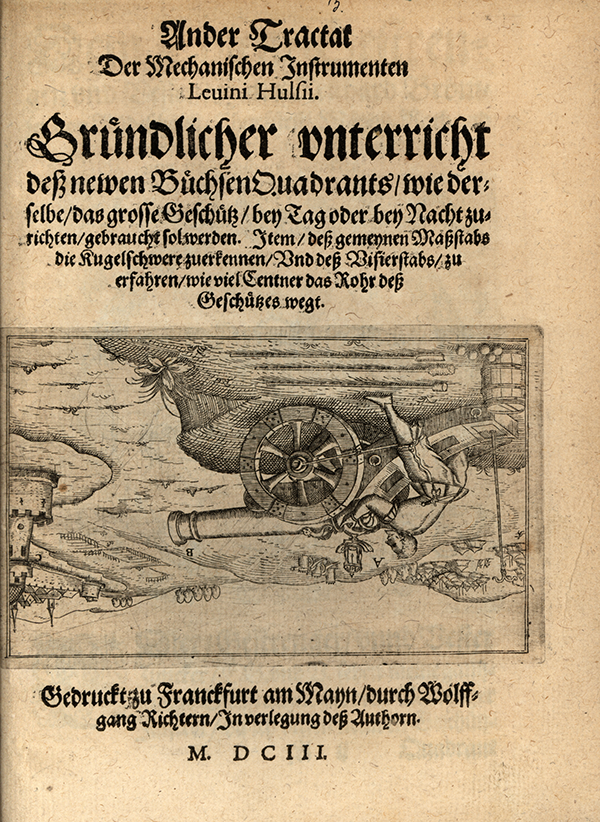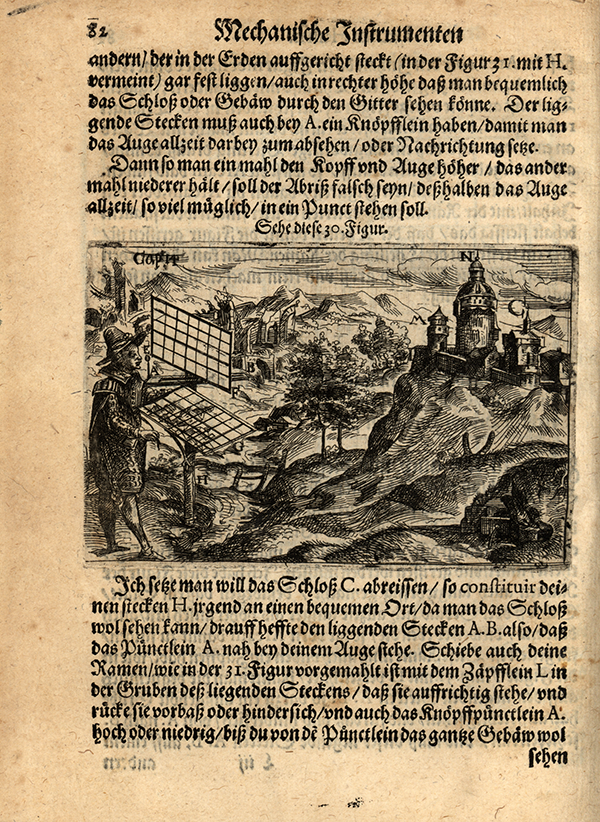- About MAA
- Membership
- MAA Publications
- Periodicals
- Blogs
- MAA Book Series
- MAA Press (an imprint of the AMS)
- MAA Notes
- MAA Reviews
- Mathematical Communication
- Information for Libraries
- Author Resources
- Advertise with MAA
- Meetings
- Competitions
- Programs
- Communities
- MAA Sections
- SIGMAA
- MAA Connect
- Students
- MAA Awards
- Awards Booklets
- Writing Awards
- Teaching Awards
- Service Awards
- Research Awards
- Lecture Awards
- Putnam Competition Individual and Team Winners
- D. E. Shaw Group AMC 8 Awards & Certificates
- Maryam Mirzakhani AMC 10 A Awards & Certificates
- Two Sigma AMC 10 B Awards & Certificates
- Jane Street AMC 12 A Awards & Certificates
- Akamai AMC 12 B Awards & Certificates
- High School Teachers
- News
You are here
Mathematical Treasure: Hulsius on Mechanical Instruments
Levinus Hulsius (1550–1606) was born in Ghent and died in Frankfurt. Little else is known about him other than that he authored a collection of three treatises, Tractat der Mechanischen Instrumenten (1603-04). In the second volume, he discussed the use of mathematical instruments in the guiding of artillery. In some editions of the treatise, the title page illustration was somehow set and printed upside down.

The same illustration also appeared in the text itself in its correct posture:

Another volume contained an illustration demonstrating the use of a grid in the sketching of an object:

The images above were obtained through the courtesy of the Erwin Tomash Library on the History of Computing, Charles Babbage Institute, University of Minnesota.
Erwin Tomash (1921-2012) was a pioneering computer scientist, helping launch the U.S. computer industry from the 1940s onward. During the 1970s he became interested in the history of computer science, and founded the Charles Babbage Society, and its research arm, the Charles Babbage Institute. The Institute, an archive and research center, is housed at the University of Minnesota. Its Erwin Tomash Library on the History of Computing began with Tomash's 2009 donation to the Institute of much of his own collection of rare books from the history of mathematics and computing. (Source: Jeffrey R. Yost, Computer Industry Pioneer: Erwin Tomash (1921-2012), IEEE Annals of the History of Computing, April-June 2013, 4-7.)
Frank J. Swetz (The Pennsylvania State University), "Mathematical Treasure: Hulsius on Mechanical Instruments," Convergence (August 2018)




